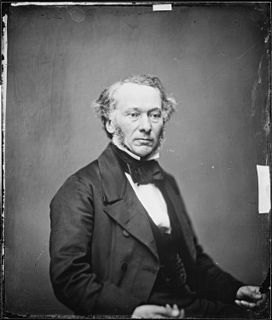A Quote by Albert Bandura
People's beliefs about their abilities have a profound effect on those abilities. Ability is not a fixed property; there is huge variablitiy in how you perform.
Related Quotes
Recipients of transfers tend to become less self-reliant and more dependent on government payments. When people can get support without exercising their own abilities to discover and respond to opportunities for earning income, those abilities atrophy. People forget - or never learn in the first place - how to help themselves, and eventually some of them simply accept their helplessness.
I am sympathetic to the general form of Aristotle's view: the exercise of complex and more inclusive abilities is not anything in itself that is or necessarily should be valued over simple and less inclusive abilities. Rather, value depends on what the abilities are and the ends to which they are put.
We may find the Divine to be 3,000 times what we think it is now. It's like asking the tulip there to explain you. The tulip is a beautiful creation, with millions of atoms cooperating with each other to produce great beauty, but ask that tulip to talk about you, and it can't do it. It doesn't have those perceptive abilities. Wouldn't it be conceited to suggest that I had the abilities to describe the deity?
I think the willingness to listen is really a matter of confidence. You can't be so superconfident in your abilities that you ignore what others say, and you can't be so diffident in your abilities that you think that if they say something, you will be so taken in that you will do the wrong thing. When you are confident about your abilities and also fully aware of what you don't know you are willing to listen to outside experts with the full sense that if you don't find it worthwhile you will ignore it.
Keep the extent of your abilities unknown.The wise man does not allow his knowledge and abilities to be sounded to the bottom, if he desires to be honored at all. He allows you to know them but not to comprehend them. No one must know the extent of his abilities, lest he be disappointed. No one ever has an opportunity of fathoming him entirely. For guesses and doubts about the extent of his talents arouse more veneration than accurate knowledge of them, be they ever so great.




































